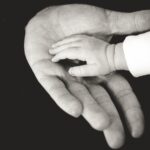
That November morning, my thirtysomething live-in son leaned against the kitchen counter, arms crossed, a distant look in his intense blue eyes. For the thousandth time, I was pleading with him. “I only want you to be healthy and happy. What’s going to happen to you when Dad and I are gone?”
He shrugged and examined his cuticles.
I went on for several minutes, ending with, “You know, your dad and I love you. We only want the best for you.”
I was sure I couldn’t deal with his addiction one minute longer. As he walked off, I caught the stench of stale beer.
I used to think that if I just held my nose and tolerated my sons long enough, eventually they’d change. Often and loudly, I complained that I was losing my grip on that slippery slope, ready to give up. I was valiant, bravely slogging through the blizzard called addiction. Daily, I told my sons how much I loved them, pleading with them or chastising their actions. I begged them to see their dismal future and told them how much I wanted them healthy and happy.
Trouble was, I said all this while still holding my nose. He wasn’t the least bit interested in what we wanted for him—not when I said it that way.
My intentions were good. But whenever I started in on my sons about quitting, their eyes displayed a dullness that I recognized. That bored gaze was the same one I’d had as a girl whenever my mom urged me to stand up straighter. Scoliosis made standing up straight nearly impossible for me. Mom hadn’t meant to hurt, but her comments stung. I didn’t feel loved and accepted as I was—only as she would like me to be. Was I doing that now to my sons with substance use disorder?
For so long, I admit that I tried to change them. I thought it was my motherly duty, probably as my own mom believed. Yet long after they’d become adults, I hammered and harped, enabled and schemed to get my loved ones sober. If I just say or do the right things, they’ll see the light.
I couldn’t let my kids go hit bottom somewhere, any more than I could let a stranger on the street scream in pain until the ambulance arrived. No, I’d hold their hands and comfort them no matter whether the pain was self-inflicted or not. But nothing changed.
My efforts only succeeded in annoying them and frustrating me. Since I’m no good at tough love and I don’t seem to be able to detach, I felt stuck.

Something had to change. That something was me.
Something had to change. That something was me.
Slowly, I began to reject the old ways of dealing with my loved ones. By treating them with kindness instead of derision, my sons stopped treating me as the enemy. Little by little they speak and act more like the precious sons I once knew. They’re not yet in recovery. But I am.
How have I changed? I’ve stopped automatically thinking of my sons as liars and manipulators always trying to ruin my day. I find it a self-fulfilling prophecy, so I don’t judge. I don’t need to be suspicious or on guard all the time. If they take advantage, I’ll be wiser next time, but I won’t talk about them as if they’re worthless.
Yes, sometimes they’re too high or drunk for niceness—they can be awfully mean. Safety is my basic boundary—I’ve hidden in a bedroom, calling 911. It’s futile to carry on a real conversation with someone who’s impaired. I tolerate what I can, but if my boundaries are breached, I’ll do what I must. In between those times, boundaries are easier to maintain if I’m loving and open instead of looking to catch them doing wrong.
I’m not perfect and often I revert to the old me. But mostly, I’ve learned too much to hide my love under a blanket of conditions. And in letting go of my need for my sons to do what I prefer, I’m grateful for every moment with them. The shift in my attitude convinces me that the opposite of addiction really is connection, delivered in a pipeline made of love.
This Thanksgiving, I won’t merely tolerate my kids—I’ll love them without expectations. When my son’s gorgeous blue eyes light up, I’ll know that gratitude is really another name for love. I won’t even have to hold my nose to breathe it in.








Love this. Thanks again for your vulnerability and honesty.
Hi Jane,
So thankful you walk beside me on this journey!
Happy Thanksgiving to you and yours,
Linda
Bright Blessings on you and yours. Your path sure ain’t easy. Alcohol addiction runs up both sides of my family tree (father and mother) and misses very few of us. Of course, the damage cause by the addiction catches everyone in the family tree regardless of current addiction status. -tc
Tom,
It seems to miss very few of us. I am always awed by the fact that SUD skipped me for some reason. But you’re right–it affects all of us. Here’s wishing you a lovely holiday.
Best,
Linda